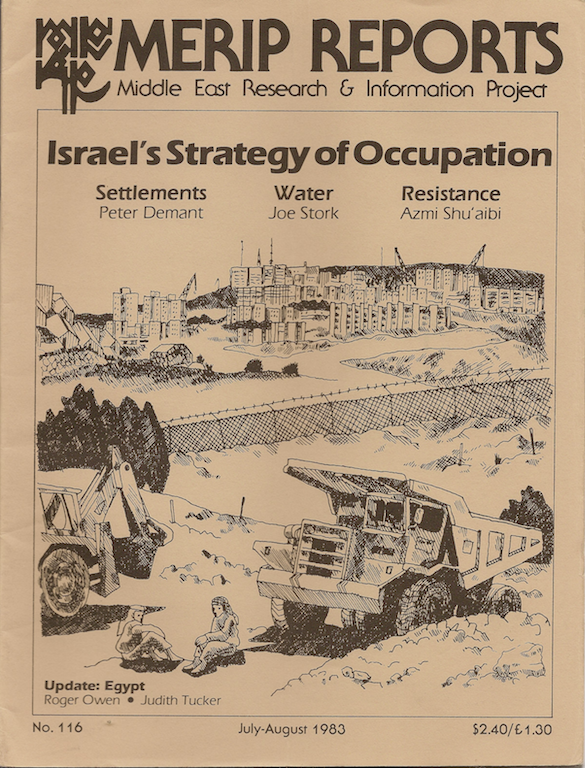
MER Article
It Was Beirut, All Over Again…Again
One night in August 2021, I fell through a portal. It was hot, and there was no electricity. I had already missed the de facto bedtime of 1am set by our generator’s regimen. My portable fluorescent lantern was fully charged. The stale, heavy air of a cooled-down, closed roomCulture and Politics, Culture as Politics
Although MERIP is best known for political economy critiques of systems of resource extraction, imperialism and authoritarianism, artwork, creative texts and cultural reviews have never been merely supplemental to its project. Elevating cultural expression and aesthetic performance from the Middle East and North Africa can be an act of political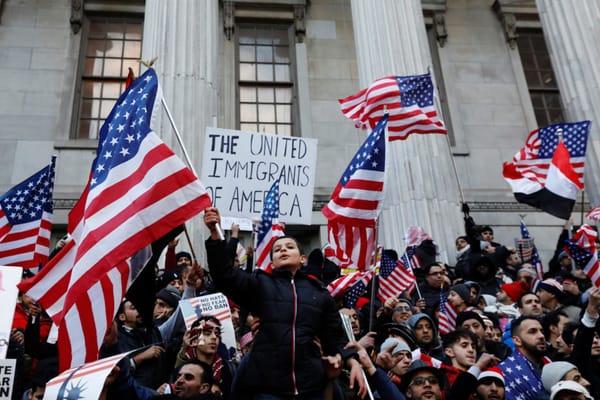
Covering Surveillance, Struggles and Solidarity in the Arab American Community
Although issues of domestic surveillance and discrimination faced by Arabs living in the United States became more prominent after the attacks of September 11, 2001, MERIP has been covering them continuously since the organization was founded 50 years ago. Arguably the most incisive report in any publication about the US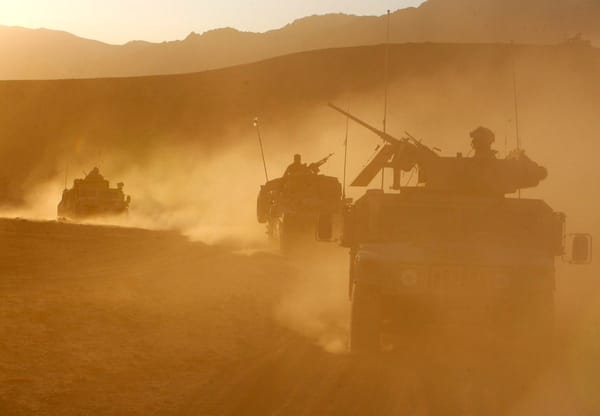
Refusing Imperial Amnesia in the War on Terror
In a Winter 2001 editorial, MERIP editors Chris Toensing and Elliott Colla insisted, “The hijackings and mass murders of September 11 were horrible and momentous, but the world did not suddenly change on that crystal-clear morning.” MERIP presciently argued that the horrific spectacle of the world’s richest country bombing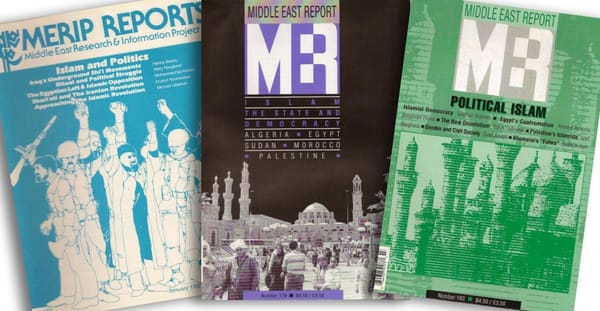
Understanding the Diversity of Political Islam
The complex phenomenon of political Islam has inspired much sensational and alarmist writing, both popular and scholarly. Since the early 1980s, however, MERIP contributors have provided an antidote with in-depth and nuanced analyses of the impact Islamic movements have had on popular struggles for democracy and women’s rights and
MERIP’s First Decade of Iran Coverage from Political Challenge to Revolution
MERIP’s coverage of Iran from the organization’s founding in 1971 up through the 1979 revolution and the early years of post-revolutionary state formation remain an invaluable resource for understanding and teaching the history of Iran’s long 1970s. MERIP writers in this period were grappling with the meaning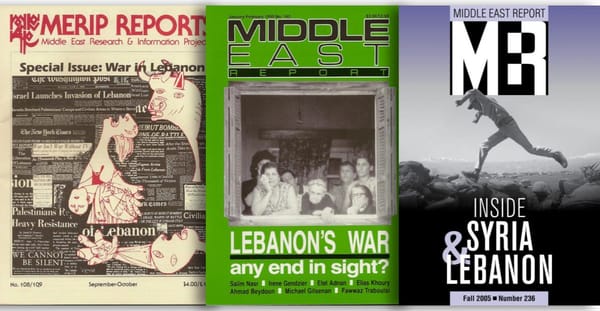
Capturing the Complexity of Lebanon’s Civil War and Its Legacies
The current political and economic crises in Lebanon reveal the myriad ways that the Lebanese continue to deal with the aftereffects of the 1975–1990 civil war. The roots of many of today’s crises—a collapsing currency, shortages of basic goods like medicine, fuel and electricity, rising poverty and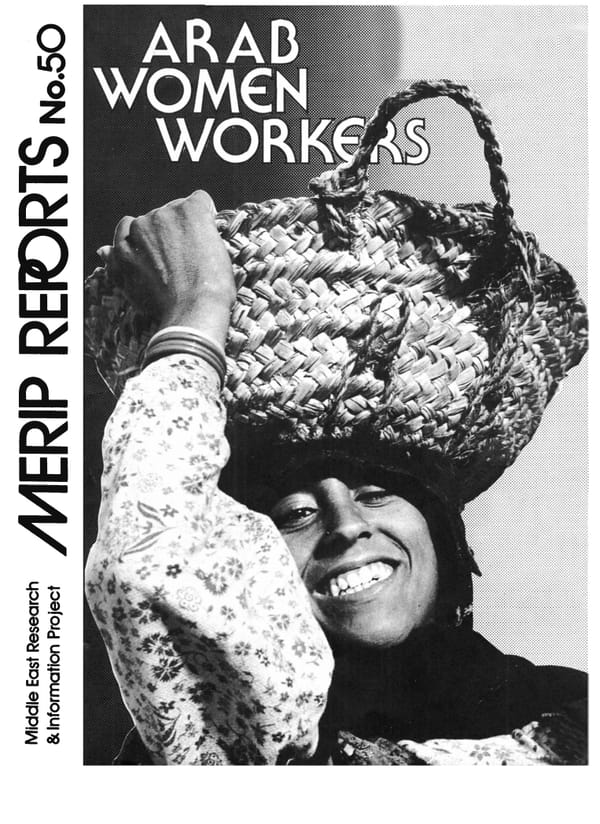
Shifting Approaches to Women and Gender in Labor, Politics and Society
It took MERIP some five years and 50 issues before it finally addressed women and gender in its pages. In August 1976, the two feature articles explored questions about working women, my own “Egyptian Women in the Work Force” and “The Proletarianization of Palestinian Women in Israel” by Najwa Makhoul
Putting Workers on the Map
When the first issue of MERIP Reports was published in May 1971, discussions of labor relations and workers were common in the New Left circles from which its editors emerged but were nearly invisible in debates about the Middle East and North Africa among American and European academics and activists.
On the Ground with Palestine’s Intifada Generation
In December 1987, Palestine’s “generation of occupation” erupted in popular rebellion not seen since the 1936 revolt against British mandate rule. By the autumn of 1988, MERIP had already dedicated nearly three full issues to the roiling Intifada against Israeli occupation and oppression: “Human Rights and the Palestine Conflict,